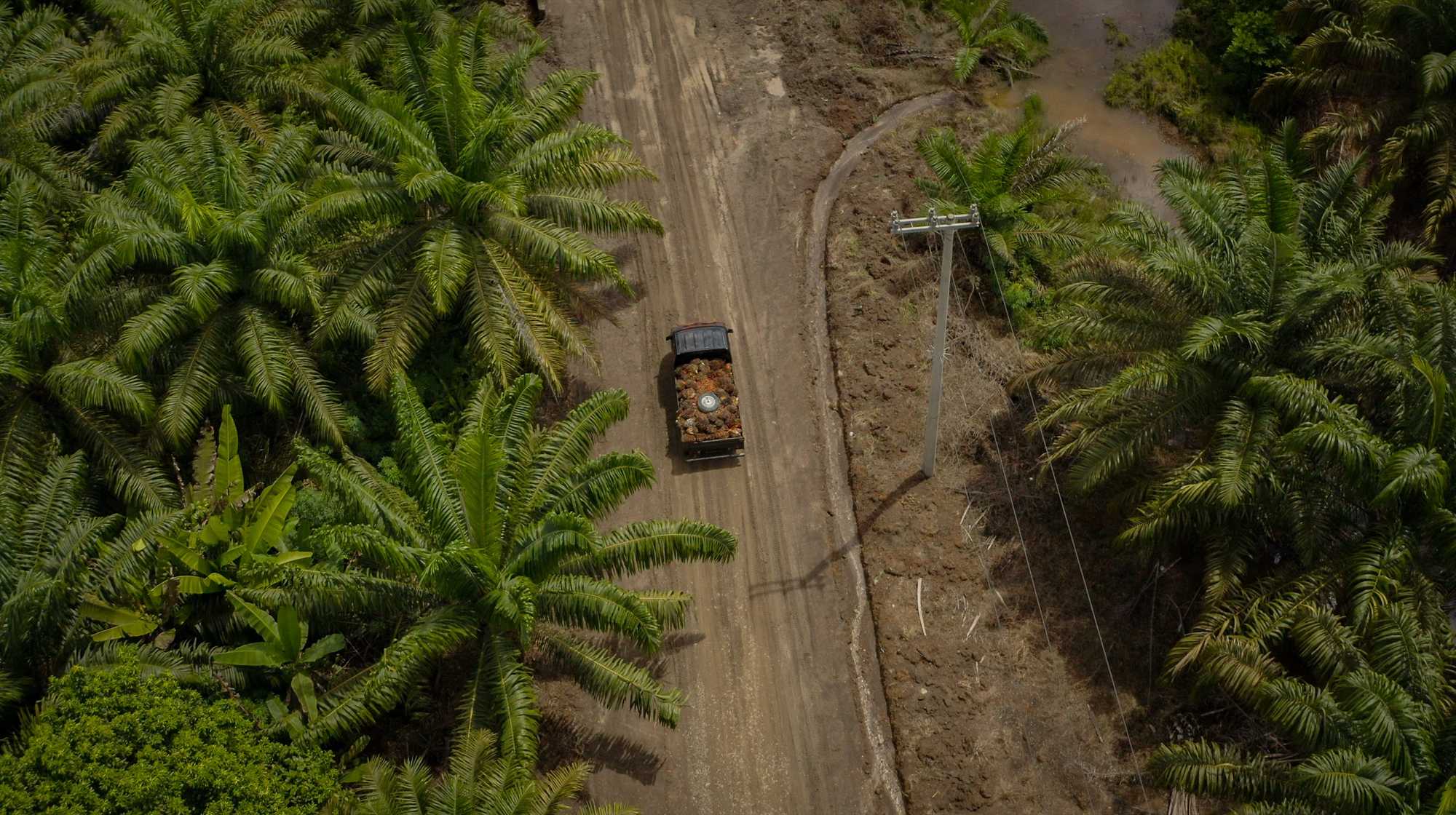This week, The Gecko Project published an investigation suggesting that First Resources, one of the world’s largest palm oil producers, has secretly controlled a group of companies that has cleared more rainforest for palm oil than any other in Southeast Asia.
We shared our findings in advance with publications from across Europe and in Indonesia. These publications have all taken part in Deforestation Inc., a collaboration coordinated by the ICIJ interrogating the sustainability claims of forestry and plantation firms worldwide. Using the evidence we obtained, journalists from these publications dug into the case, conducting additional reporting into Western palm oil buyers’ links to First Resources and other topics.
As a result, eight media organisations across Europe and the US have published stories based on the investigation, in five different languages.
International Consortium of Investigative Journalists (ICIJ)
The ICIJ published a story identifying additional links between members of the Fangiono family and alleged First Resources shadow company group FAP Agri, using documents obtained as part of the 2021 Pandora Papers investigation.
The ICIJ also examines what it describes as a loophole in the rules of the Singapore Exchange (SGX), where First Resources is listed. According to ICIJ, the SGX requires companies to prepare annual reports documenting their sustainability practices, but does not stipulate that an independent party audits those reports.
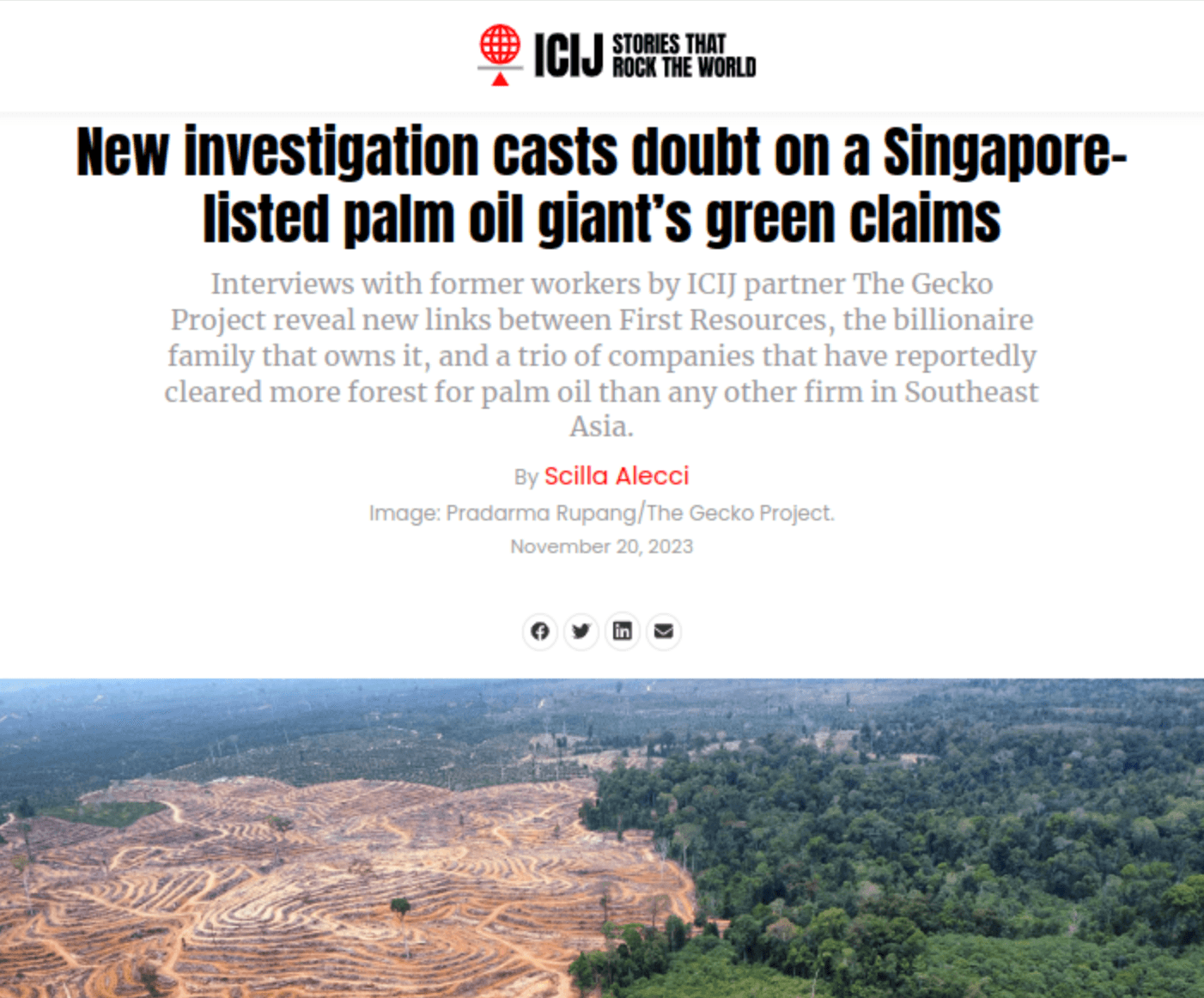
El País
El País, one of Spain’s leading newspapers, published a piece examining supply chain connections between First Resources and Grupo Bimbo, Procter & Gamble and other consumer goods companies that produce products for Spanish supermarket shelves.
In response to a request for comment, food and beverage firm Danone told El País that it was not currently sourcing from First Resources but took the allegations “very seriously” and would examine the findings of The Gecko Project’s investigation.
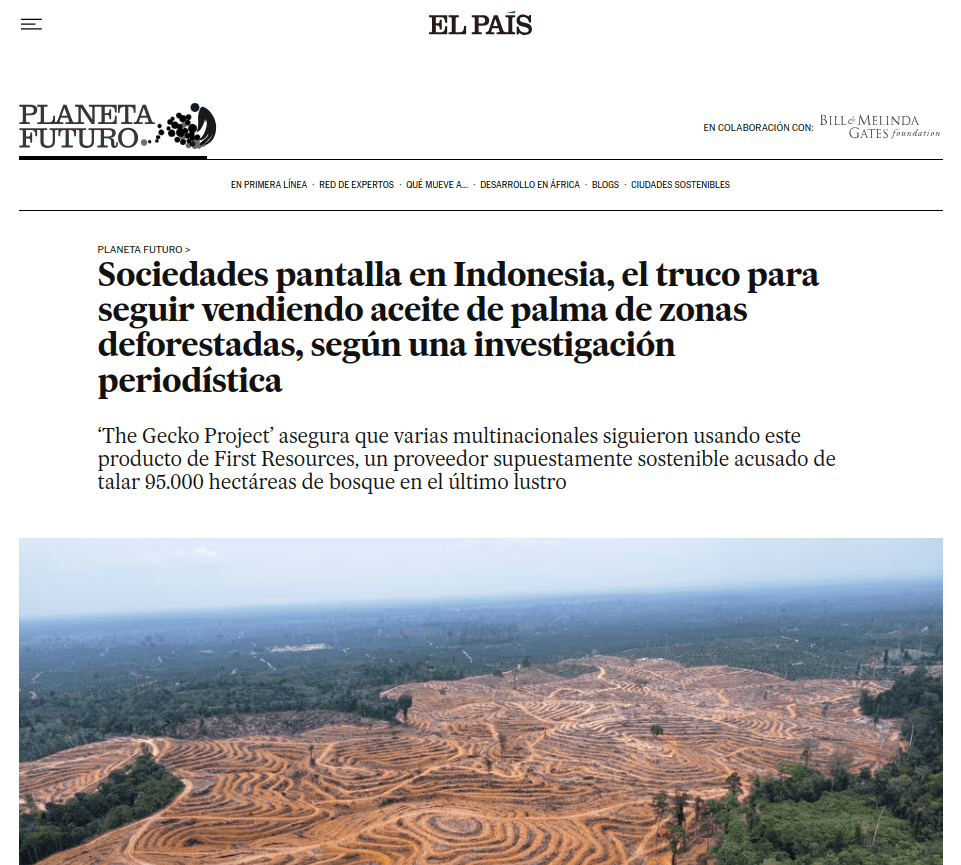
Süddeutsche Zeitung
Süddeutsche Zeitung, one of the largest papers in Germany, published an article focused on the indigenous Dayak Agabag community, which has been involved in an extended conflict with FAP Agri over the use of their customary land in Borneo. The article was published as the main item on Süddeutsche's homepage, as well as in print. The paper reported that Beiersdorf, which owns the cosmetics brand Nivea, had bought palm oil from FAP Agri in 2022; in response, Beiersdorf said that it had asked its suppliers to suspend links to the company after becoming aware of “clear violations” by FAP Agri in early 2023.
Süddeutsche Zeitung also stated that Deutsche Bank was a shareholder in First Resources, and that the German asset manager DWS had invested in the company. In response, Deutsche Bank told Süddeutsche Zeitung that it held the shares for other customers and would not invest in First Resources itself, while DWS stated that only one of its products had a minimal stake in the company.
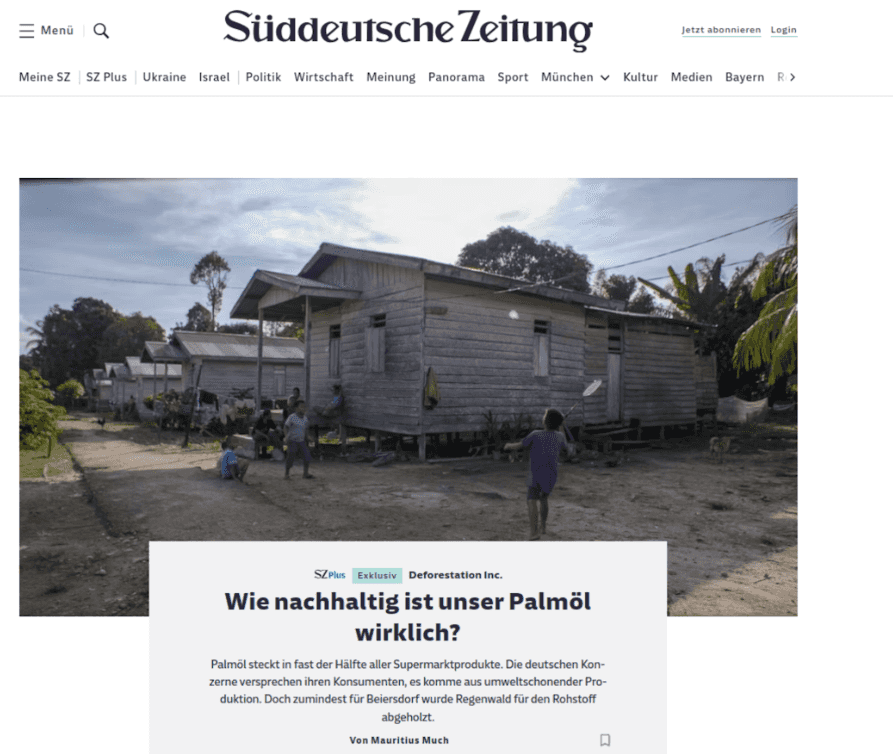
WDR and NDR
The German public broadcasters WDR and NDR published a piece on the national news website Tagesschau on three companies that source palm oil from First Resources: Beiersdorf, Henkel (the makers of Persil detergent), and chemicals firm BASF. In response to questions, BASF and Henkel said that they would investigate the allegations.
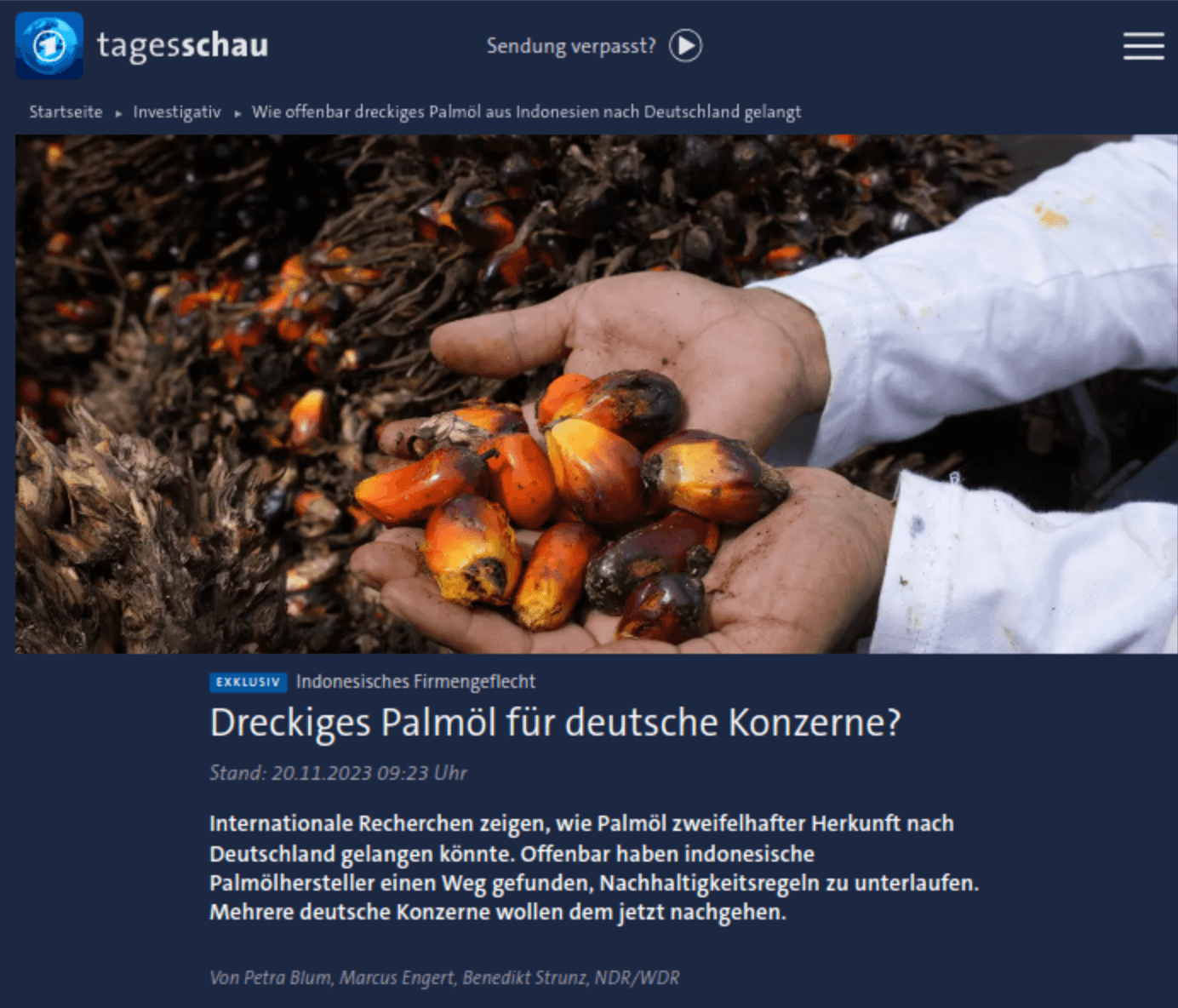
Follow the Money
The Dutch investigative journalism platform Follow the Money published an in-depth feature on the investigation’s findings. Dairy company FrieslandCampina and margarine manufacturer Upfield told Follow the Money that they had asked their direct suppliers to investigate the allegations, and that they were monitoring an RSPO investigation into First Resources’s links with two of the three alleged shadow company groups.
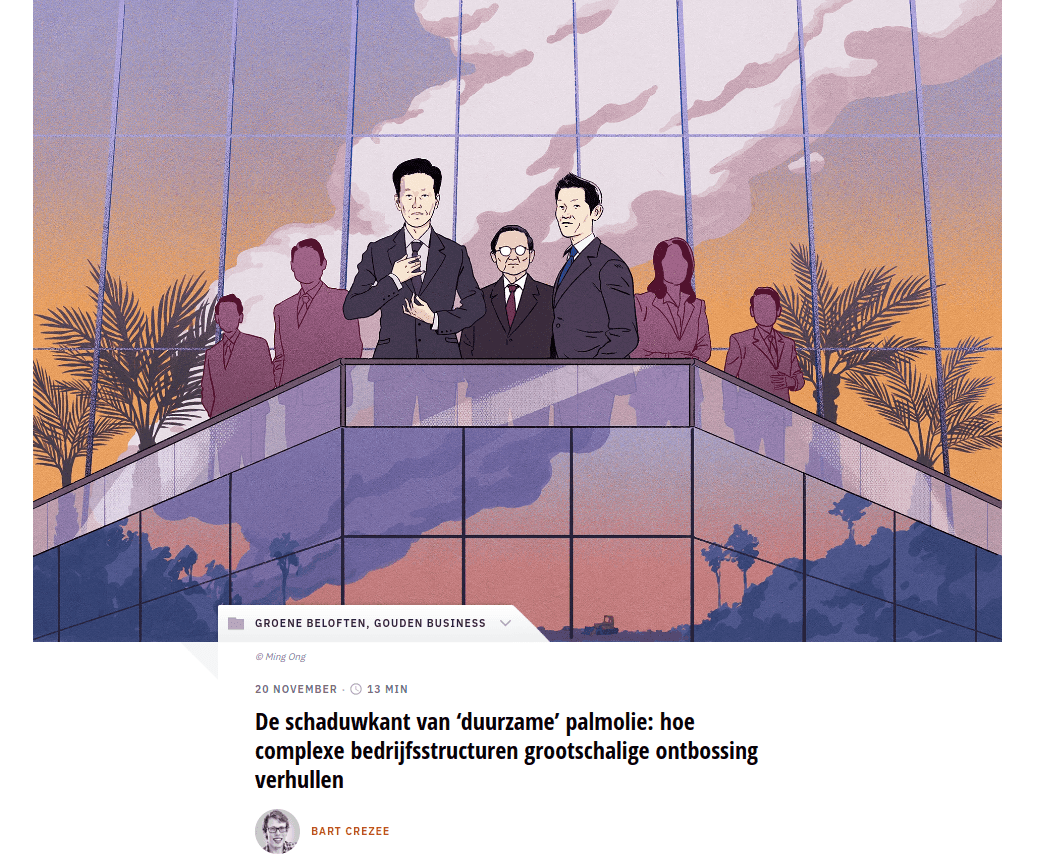
De Tijd
The Belgian financial daily De Tijd published a story on the front page of its website focusing on the margarine and croissant manufacturer Vandemoortele, which stated that palm oil from First Resources was present in its supply chain until the first half of 2022. Vandemoortele told De Tijd that it had asked its direct suppliers to investigate allegations against First Resources, and would ask those suppliers to remove First Resources from its supply chain until the investigation was complete.
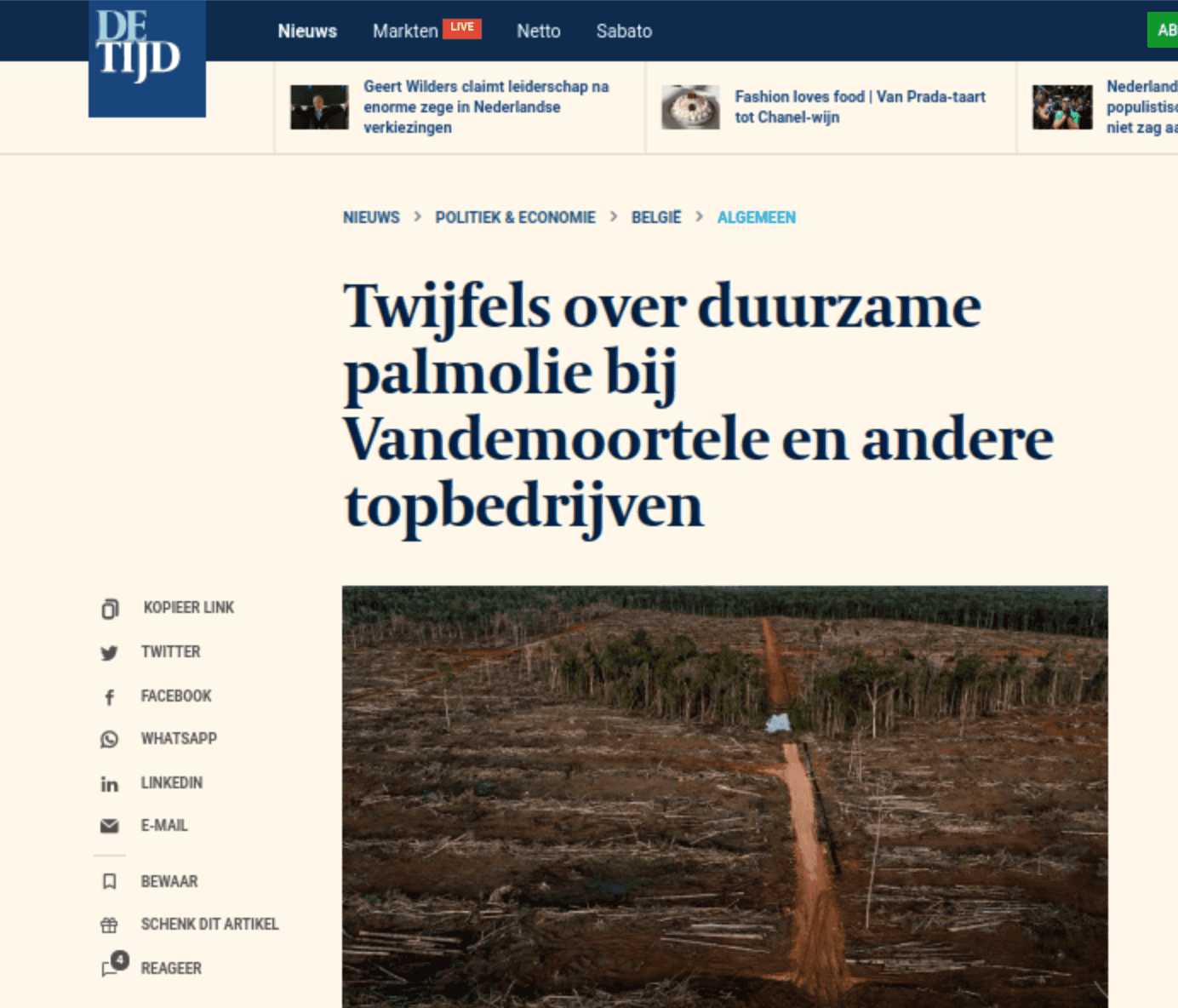
Knack
The Belgian weekly magazine Knack also published an article on the findings. In response to questions from Knack, Oleon - a firm that processes oils and fats - stated that it was monitoring the RSPO complaint against First Resources, and would take action if the investigation’s allegations were found to be accurate.
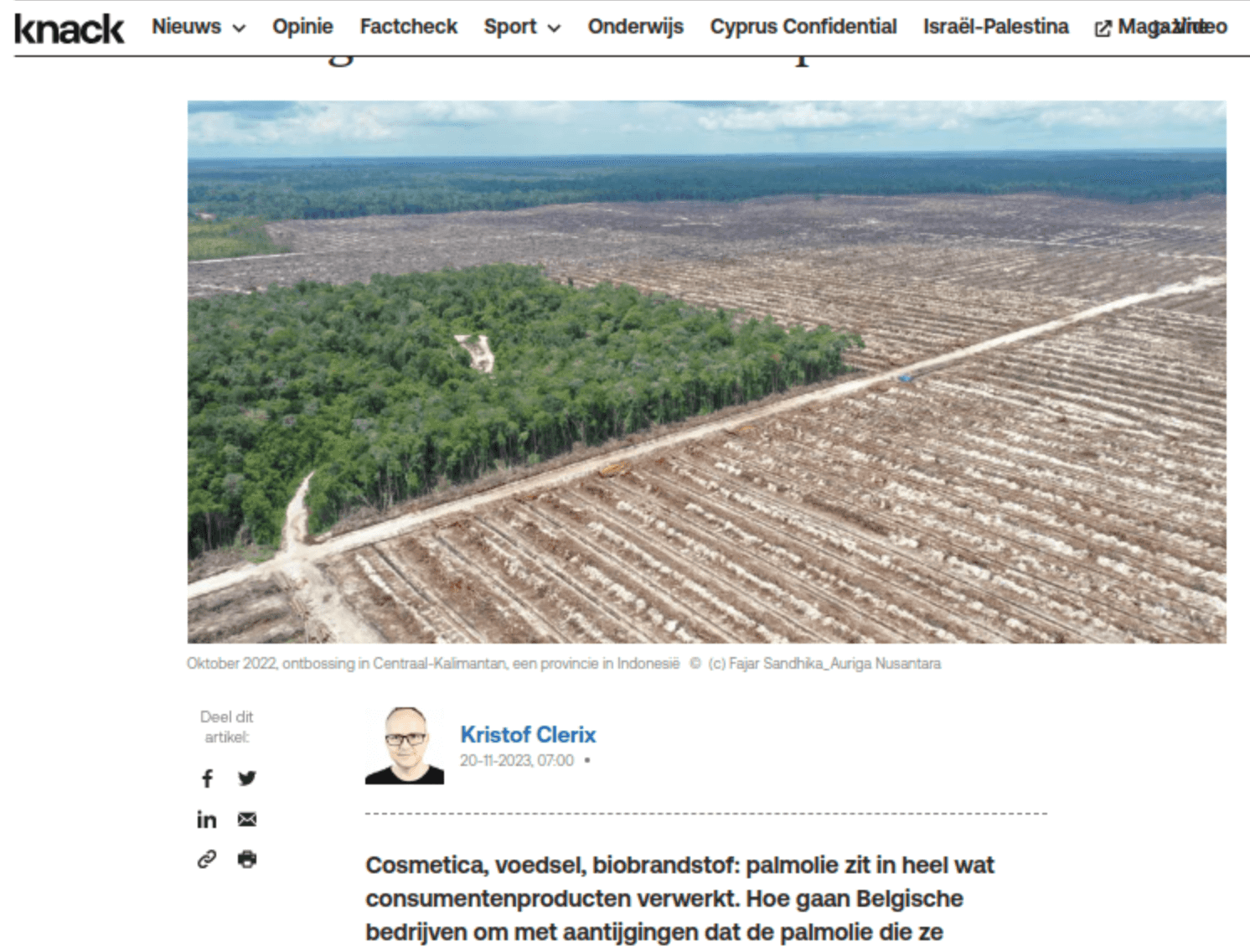
Read more reporting from The Gecko Project on corporate accountability here.
Join The Gecko Project's mailing list to get updates whenever we publish a new investigation.
Header image: a truck carries palm fruit in a concession belonging to FAP Agri, one of the alleged shadow company groups identified in the Chasing Shadows investigation. By Jamie Wolfeld/Forest Peoples Programme.
